Search Results
Showing results 1 to 20 of 28
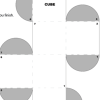
Fold a Crystal
Source Institutions
Rocks are made of minerals, and minerals often have crystal shapes. In this fun activity about geometry in nature, learners create their own crystal shapes out of paper.
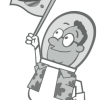
A Flag for Your Planet
Source Institutions
In this activity, learners design a flag for a chosen or assigned planet. The instructions include information about flags on Earth, and a list of flag references.
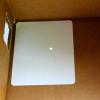
Pinhole Viewer
Source Institutions
In this activity, learners discuss and investigate how cameras, telescopes, and their own eyes use light in similar ways.
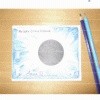
Eclipse Flipbook
Source Institutions
In this activity, learners make flipbooks of drawings showing the progression of a Total Solar Eclipse.

Building a 3-D Space Maze: Escher Staircase
Source Institutions
In this activity (page 95 of the PDF), learners create Escher Staircase models similar to those that were used by Neurolab's Spatial Orientation Team to investigate the processing of information about
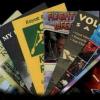
Destination Tidepool
Source Institutions
In this activity (page 7 of pdf), learners research tide pool ecosystems, and then create brochures that "advertise" these environments.
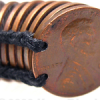
Penny Rubbing
Source Institutions
In this art-related activity, learners make a coin rubbing—a process similar to what archeologists may do with ancient artifacts. This activity can be used in connection with a history or art lesson.
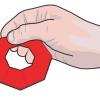
Origami Flying Disk
Source Institutions
In this three-part activity, learners use paper to explore Bernoulli's Principle — fast-moving air has lower pressure than non-moving air.
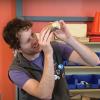
Constellation Tubes
Source Institutions
In this activity, learners will create their very own constellation.
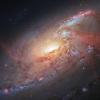
Postcards from Space
Source Institutions
Using information from the My Place in Space lithograph, learners write and/or draw a postcard to friends and family as if they had gone beyond the interstellar boundary of our Solar System, into the
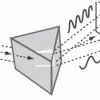
Rainbow in the Room
Source Institutions
This activity generates learner excitement about light through the creation of a room-sized rainbow.
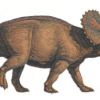
X-ray Dinosaurs
Source Institutions
In this activity, learners explore dinosaur fossils and skeletons. First, learners listen to "Tyrannosaurus Rex" by Daniel Cohen to learn about T. rex dinosaurs specifically.
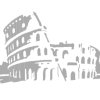
Disappearing Statues
Source Institutions
In this activity (on page 8), learners model how marble statues and buildings are affected by acid rain.
Mission Insignia
Source Institutions
In this science/art activity, learners create an insignia or emblem for a planet exploration mission.
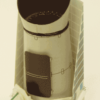
Kepler Paper Model
Source Institutions
In this activity, learners build a paper model of the spacecraft and photometer (telescope) used during NASA's Kepler Mission.
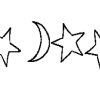
Moon and Stars
Source Institutions
In this craft activity, learners create a string of cut-out moons and stars.
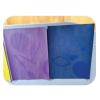
DIY Sunprints
Source Institutions
In this activity, learners will see how UV light affects colors over time by making their own sunprint on construction paper.
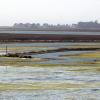
Wetland Preservation Art
Source Institutions
In this hands-on art and science activity (page 4 of the pdf), learners brainstorm and discuss how humans use wetlands, then express their understanding of the subject in artwork.
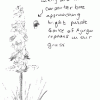
Nature Drawing
Source Institutions
In this family or group activity, learners create a nature journal by visiting a local nature center or backyard, observing creatures in their natural habitats, and sketching what they see.
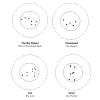
Constellation Scope
Source Institutions
In this activity, young learners explore the basic shapes of constellations by making their own scope out of a cardboard tube and paper with pinpricks.
